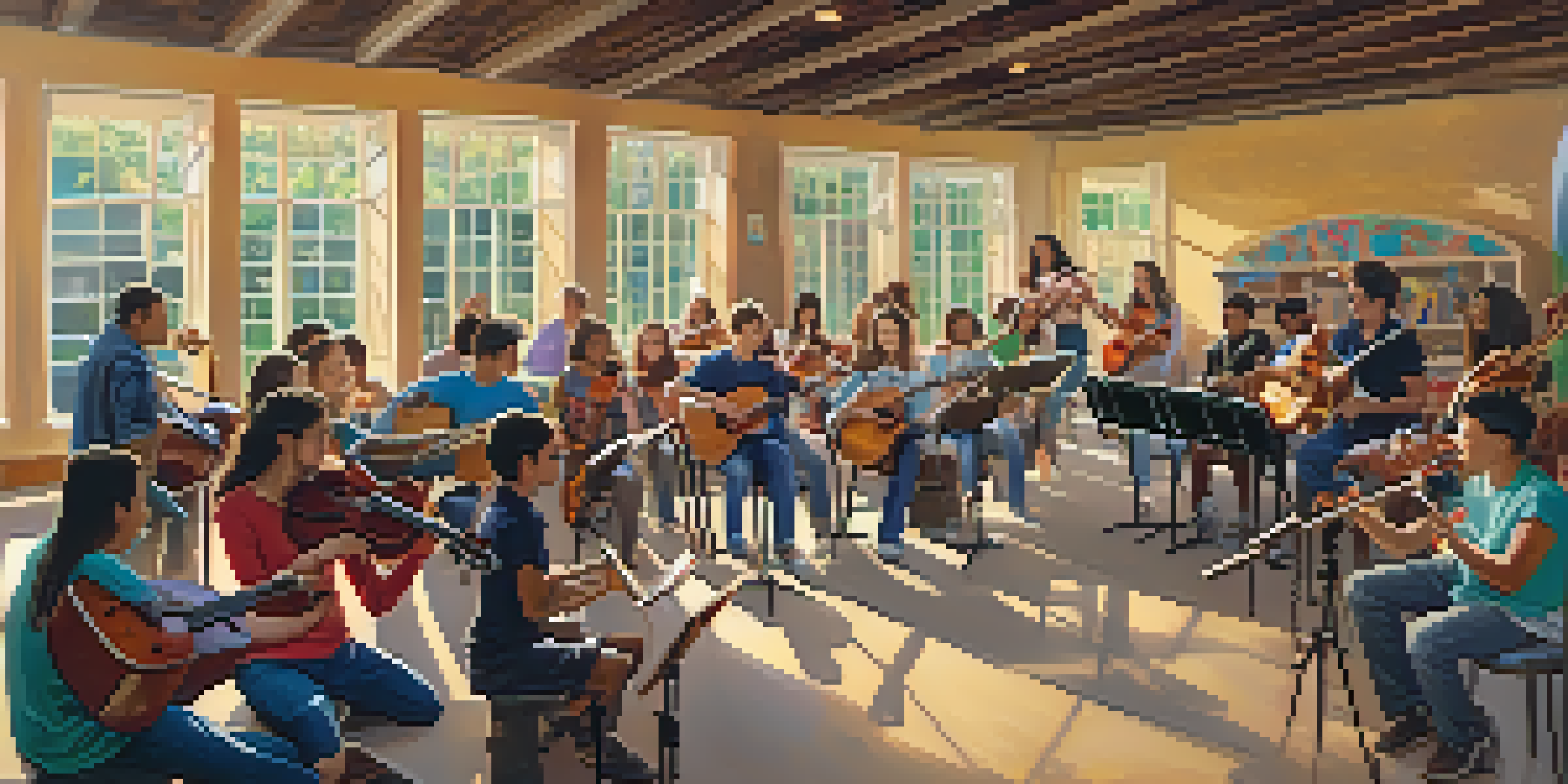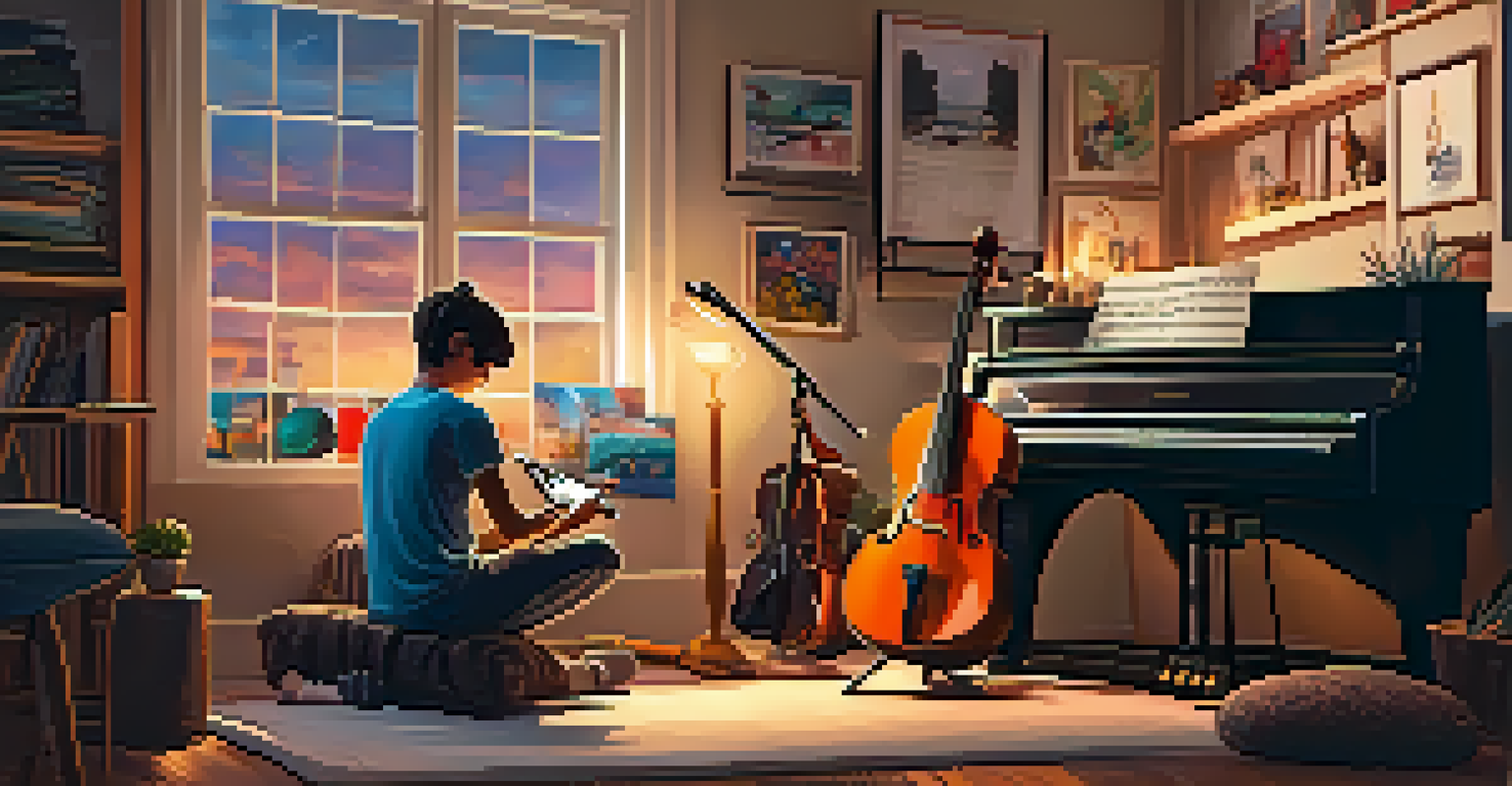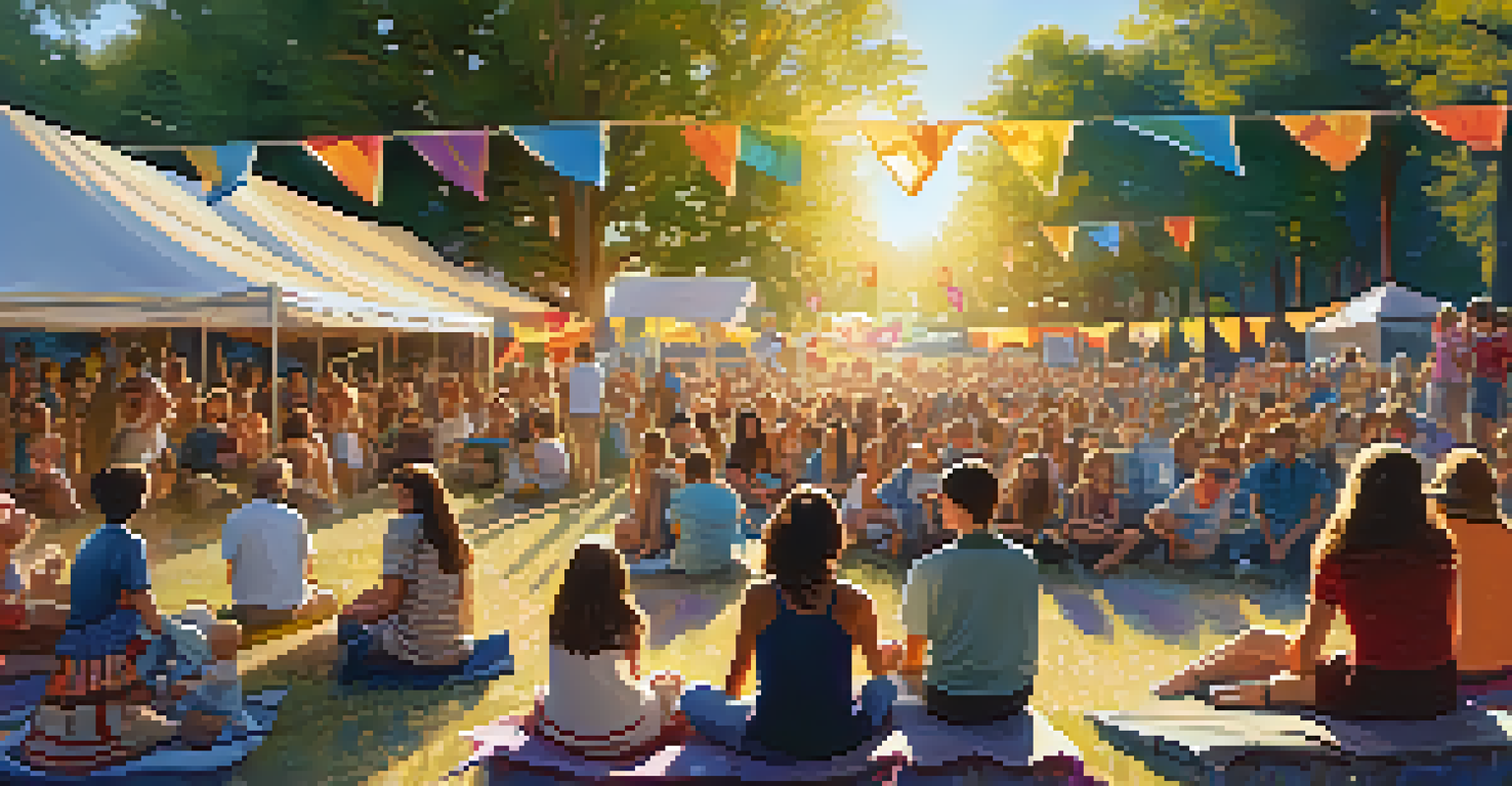Creating Performance Opportunities for Young Musicians to Shine

Understanding the Importance of Performance Opportunities
Performance opportunities are crucial for young musicians, as they allow them to showcase their skills and gain confidence. It's not just about playing notes; it's about expressing emotions and connecting with an audience. These experiences can be pivotal in a young musician's development, forming lifelong memories and valuable lessons.
Music can change the world because it can change people.
When young musicians perform, they learn to navigate the excitement and nerves that accompany live events. This can teach them resilience and adaptability—skills that are beneficial not only in music but in life as well. The more they perform, the more comfortable they become in their artistry, encouraging their growth.
Ultimately, regular performance opportunities can foster a sense of community among young musicians. They can support one another, share experiences, and inspire each other to reach new heights. This camaraderie can lead to lifelong friendships and collaborations that extend beyond their early years.
Creating Local Platforms for Young Musicians
Local platforms, such as community centers or schools, can serve as great venues for young musicians to perform. Organizing recitals or open mic nights not only showcases their talents but also encourages participation from peers and family. These events can be low-pressure environments where young artists can experiment and grow.

Involving local businesses or organizations can enhance these platforms. Sponsorships or partnerships can provide resources and create a sense of investment in the local music scene. When young musicians see their community rallying behind them, it boosts their confidence and motivation.
Value of Performance for Musicians
Performance opportunities help young musicians build confidence, resilience, and a sense of community.
Moreover, local platforms can introduce young musicians to a wider audience. Friends and family can share these events on social media, creating buzz and excitement that can ripple out into the community. This exposure can be invaluable in helping them establish their identity as artists.
Leveraging Online Platforms for Virtual Performances
In today's digital age, online platforms offer incredible opportunities for young musicians to perform. Websites like YouTube, Instagram, or TikTok allow them to reach audiences far beyond their local community. With just a smartphone and some creativity, young artists can showcase their talents to the world.
The only way to do great work is to love what you do.
Virtual performances can also remove some of the anxieties associated with live events. Young musicians can rehearse, edit, and present their work in a controlled environment, boosting their confidence. This flexibility can be particularly helpful for those who may struggle with stage fright.
Furthermore, online platforms can foster global connections. Young musicians can collaborate with peers from different countries, learning from each other and broadening their musical horizons. These interactions can enrich their experiences and inspire new styles and ideas.
Encouraging Participation in Competitions and Festivals
Competitions and music festivals can be fantastic avenues for young musicians to shine. They provide structured settings where artists can showcase their skills, receive feedback, and gain invaluable experience. Participating in these events can inspire musicians to push their boundaries and strive for excellence.
Moreover, competitions often come with the added benefit of exposure. Winning or even participating can lead to scholarships, mentorships, or performance opportunities that might not have been accessible otherwise. This recognition can be a significant motivator for young artists.
Local and Online Platforms Matter
Creating local venues and utilizing online platforms can significantly enhance exposure and opportunities for young artists.
It's essential, however, to approach these competitions with a healthy mindset. Emphasizing personal growth over winning can help young musicians maintain their passion for music while navigating the competitive landscape. The journey, after all, is just as important as the destination.
Establishing Mentorship Programs for Young Talent
Mentorship programs can play a crucial role in nurturing young musicians. Connecting them with experienced artists can provide guidance, support, and inspiration. Mentors can share their experiences, offer constructive feedback, and help young musicians navigate the challenges of the music industry.
Having a mentor also creates a safe space for young artists to express their fears and aspirations. This relationship can build their confidence and encourage them to take risks in their music. A mentor’s belief in their potential can often be the push needed to take their talents to the next level.
Moreover, mentorship programs can foster a sense of community and belonging. Young musicians can connect with others who share their passion, creating networks that can last a lifetime. These connections can lead to collaborations, friendships, and further opportunities in their musical journey.
Incorporating Performance into Music Education Curricula
Integrating performance into music education can significantly enhance students' learning experiences. Regular opportunities to showcase their skills in a classroom setting can help students feel more comfortable and confident as performers. This approach can also encourage peer feedback, fostering a supportive learning environment.
Music educators can organize in-class performances, where students present pieces they've been working on. This not only helps them practice public speaking and performance skills but also creates a sense of accountability. Knowing they will perform can motivate students to practice more diligently.
Mentorship Fuels Artistic Growth
Establishing mentorship programs provides young musicians with guidance and support, fostering their development and confidence.
Additionally, including performance in curricula can expose students to diverse musical styles and genres. This variety can spark creativity and inspire young musicians to explore different avenues within their artistry. A well-rounded education can lead to versatile and adaptable musicians in the future.
Building a Supportive Community for Young Musicians
Creating a supportive community is essential for the growth of young musicians. Parents, peers, and educators can all contribute to an encouraging environment that celebrates their achievements. This support can significantly impact a young artist’s motivation and confidence.
Community events, like showcases or music fairs, can bring musicians together to share their talents. These gatherings can be a source of inspiration and camaraderie, allowing young artists to learn from each other. When they see their peers performing, it can ignite a desire to improve and experiment with their music.

Moreover, online communities can extend this support beyond geographical limitations. Social media platforms can connect young musicians with mentors, collaborators, and fans, fostering a sense of belonging. This network can be invaluable as they navigate their musical journeys, providing resources and encouragement along the way.